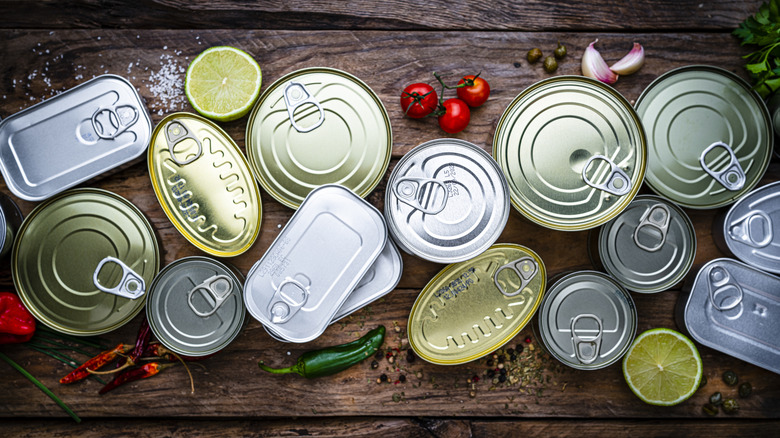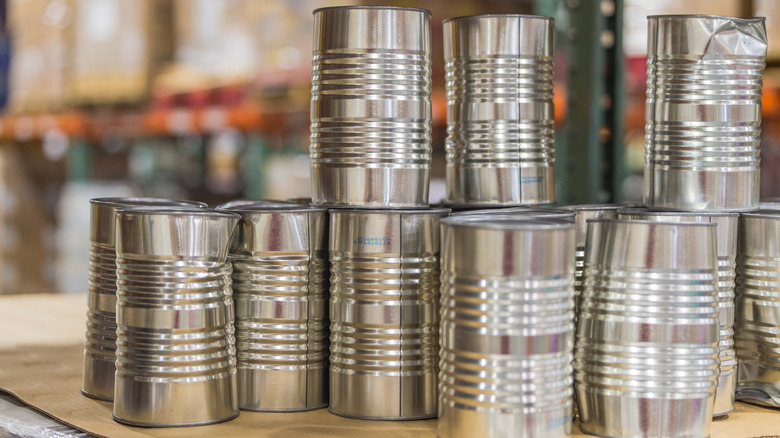The Temperature Mistake That Makes Canned Foods Unsafe
During the warmer months of the year, we are often so concerned with beating the heat that we forget some items in our homes need to be cool as well, like canned goods. People appreciate the versatility of canned soups that work well as pasta sauces and the canned ingredients that level up everyday meals like burgers, but they rarely question whether they are being stored safely. While the packaging that contains these pantry staples is typically well made, it isn't indestructible. If you make the mistake of exposing them to high temperatures for a prolonged period, they could become tainted with bacteria that can lead to foodborne illness.
Canned goods are best stored in a cool, dry place — somewhere between 50 to 70 degrees Fahrenheit is the sweet spot you're shooting for. When temperatures rise above 100 degrees, the structural integrity of the can is in jeopardy. Even in moderate climates, keeping them around hot pipes or in direct sunlight can likewise affect the quality of the can. That's because the seals holding it together are more likely to weaken at higher temperatures, potentially allowing bacteria to set up shop inside.
Storing canned goods under hot conditions isn't the only mistake folks need to avoid with these resourceful foods. Other issues, like freezing temperatures and moisture, will also impact their condition. It's essential to be mindful of how they are stored, and it is equally vital to recognize the signs of spoilage that may make someone ill.
More mistakes when storing canned goods
Just as storing canned goods in heat could affect the quality of the container, freezing temperatures can likewise create a problem. If your favorite brand of canned tomatoes freezes during the winter, you will need to act fast if you want to try and salvage it. Inspect the can for any bulges or cracks. If it seems fine, move it to an area where it can return to room temperature.
If the structure of the can has been compromised, the food may not be lost. Make sure no unpleasant odors are emanating from the product and transfer it to a new storage container. There, it can be frozen or refrigerated at that point, but keep in mind the shelf life will be reduced and you should look at it with an extra-critical eye.
Storing canned goods in moist conditions is another mistake that may deteriorate the can. Overly humid locations or areas that could suffer from water leakage should be avoided. If you notice bulging or a pungent aroma emanating from the can, throw it out to be on the safe side. Canned goods aren't generally pricey, and tossing a potentially harmful product in the trash is well worth the price of not contracting a nasty foodborne illness.

